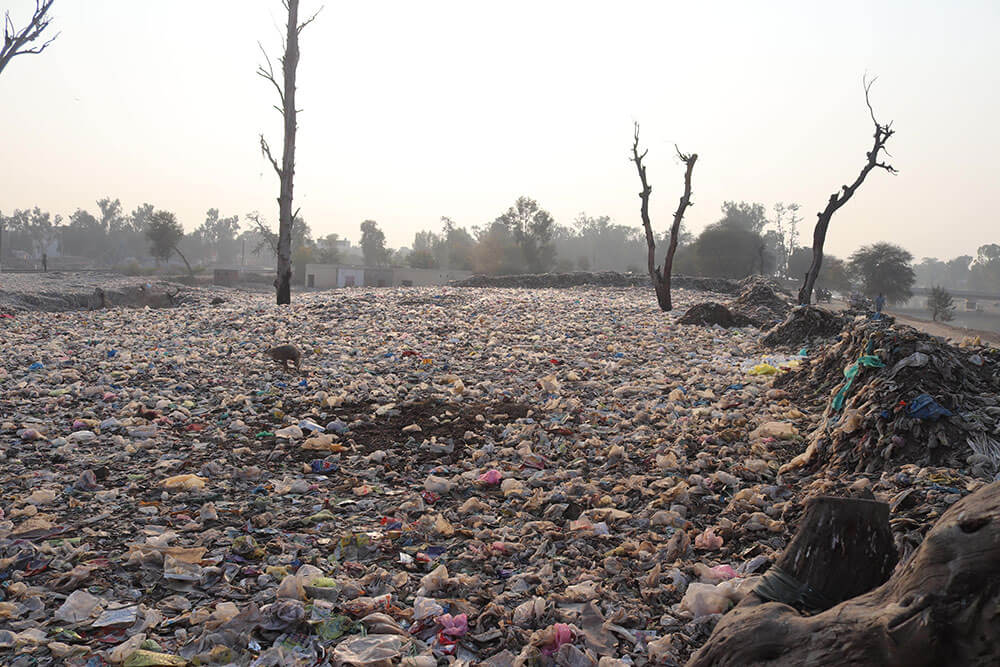 Plastic Pollution and Recycling
Plastic Pollution and Recycling

It’s been more than a week since World Oceans Day, a time when governments, corporations, and communities declare their commitment to protecting our seas. But beyond the slogans and social media filters—are we actually making progress?
This is the moment to check in. Not with promises, but with proof.
Plastic use isn’t declining—it’s diversifying
Despite years of awareness, global plastic production continues to climb. In 2023 alone, the world produced over 400 million metric tons of plastic—a record high¹. Projections suggest this figure could double by 2060 if current trends persist¹.
Even with growing bans on items like single-use straws and bags, manufacturers have shifted focus to other plastic-heavy categories—packaging, e-commerce, and synthetic textiles. This isn’t a reduction; it’s a redirection.
So let’s ask it plainly: Is the world phasing out plastic or just reshaping it?
Recycling promises vs. coastal realities
Governments often promote recycling as the go-to solution. Yet less than 10% of plastic is actually recycled globally². In coastal regions—where leakage into the ocean is most acute—waste infrastructure is often underfunded or entirely absent.
A 2023 UN report found that over 75% of plastic waste in low-income coastal areas ends up in landfills or the environment, not recycling facilities³. This isn’t just a data point—it’s a red flag.
The systems we’re counting on to catch plastic are failing to catch up with the speed of consumption.
What about pledges and policies?
Over 170 countries signed onto the UN Global Plastics Treaty negotiations. Several have enacted bans on microplastics, foam packaging, and single-use plastics. But when you compare policy announcements to implementation, the gap is glaring.
A study from The Pew Charitable Trusts found that fewer than 20% of national plastic reduction policies are fully enforced⁴. Targets are often missed. Accountability mechanisms are rare.
It’s not a lack of ambition—it’s a lack of execution.
What is working? Locally-led, transparent impact

In a landscape where top-down systems stall, bottom-up models are stepping in. That’s where Plastic Bank proves a different kind of solution is not only possible—it’s scalable.
Today, much of the world’s plastic is intercepted not by systems, but by people—millions working in the informal waste economy, often without contracts, protections, or recognition. These individuals face dangerous conditions, including exposure to toxic waste, harassment, and lack of medical access. Their work is essential, yet invisible.⁵
Plastic Bank transforms this reality by building formal infrastructure that honors the contribution of these frontline environmental defenders. Our model creates safe, traceable, and dignified pathways for plastic recovery—before it reaches the ocean.6
Since its founding, Plastic Bank has stopped over 7 billion plastic bottles from entering the environment—by empowering people in coastal communities to collect, exchange, and monetize plastic waste.
This isn’t charity. It’s circular economy infrastructure, backed by blockchain-secured traceability, which creates a verifiable chain of impact that brands, governments, and individuals can trust.
You can be part of that chain.
Create your free account and help stop plastic from entering the environment—one bottle at a time.
The missing piece: accountability and inclusion
Ocean plastic isn’t just an environmental crisis—it’s a visibility crisis. The people doing the real work of interception—often in vulnerable, overlooked communities—are left out of the conversation and underfunded.
The future isn’t just about innovation; it’s about inclusion.
Plastic Bank’s model centers on the people closest to the problem, giving them the tools, dignity, and incentive to solve it at scale. That’s why it works—and why it’s growing.Want to turn intention into action?
Create an account today and directly support the collection of plastic.
Final thought: Are we winning?
Not yet. But we could be—if we shift from performative pledges to measurable progress.
Until every bottle is counted, until every promise has proof, and until plastic no longer finds its way to the sea, the answer remains: not enough.
But there is a way forward. It starts locally, moves globally, and needs all of us.Create your free account with Plastic Bank and be part of the solution—because the planet can’t wait.
- Organisation for Economic Co-operation and Development (OECD). Global Plastics Outlook: Policy Scenarios to 2060. OECD Publishing, 21 June 2022, https://www.oecd.org/en/publications/2022/06/global-plastics-outlook_f065ef59.html
- United Nations Environment Programme (UNEP). Turning off the Tap: How the World Can End Plastic Pollution and Create a Circular Economy. UNEP, 16 May 2023, https://www.unep.org/resources/turning-off-tap-end-plastic-pollution-create-circular-economy.
- UN-Habitat, “Waste Wise Cities Tool Application,” UN-Habitat, November 2023, https://unhabitat.org/waste-wise-cities-tool
- SYSTEMIQ and The Pew Charitable Trusts. Breaking the Plastic Wave: A Comprehensive Assessment of Pathways Towards Stopping Ocean Plastic Pollution. SYSTEMIQ, July 2020, https://www.systemiq.earth/breakingtheplasticwave/
- World Bank, What a Waste 2.0: A Global Snapshot of Solid Waste Management to 2050, World Bank, 20 September 2018, https://openknowledge.worldbank.org/handle/10986/30317
- International Labour Organization (ILO), Formalizing Informal Economy: Key to Inclusive Development, ILO, June 2015, https://www.ilo.org/global/topics/employment-promotion/informal-economy/lang–en/index.htm






